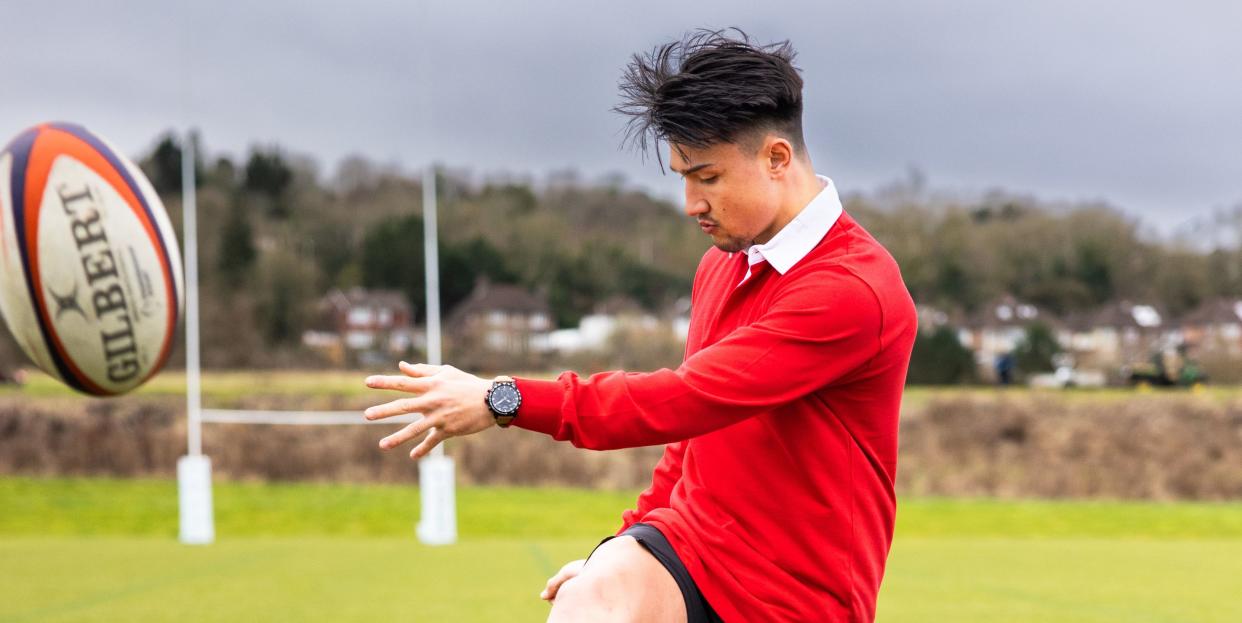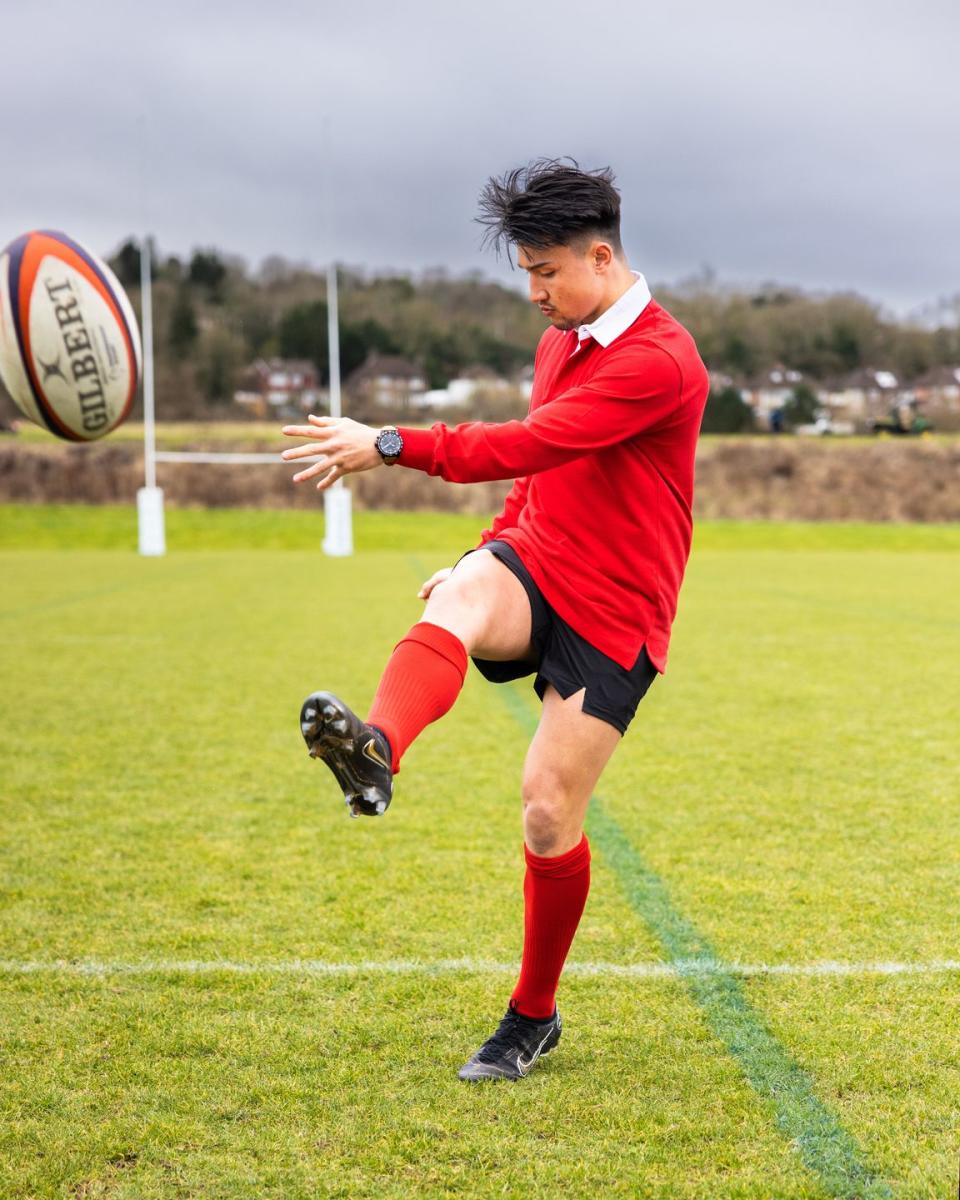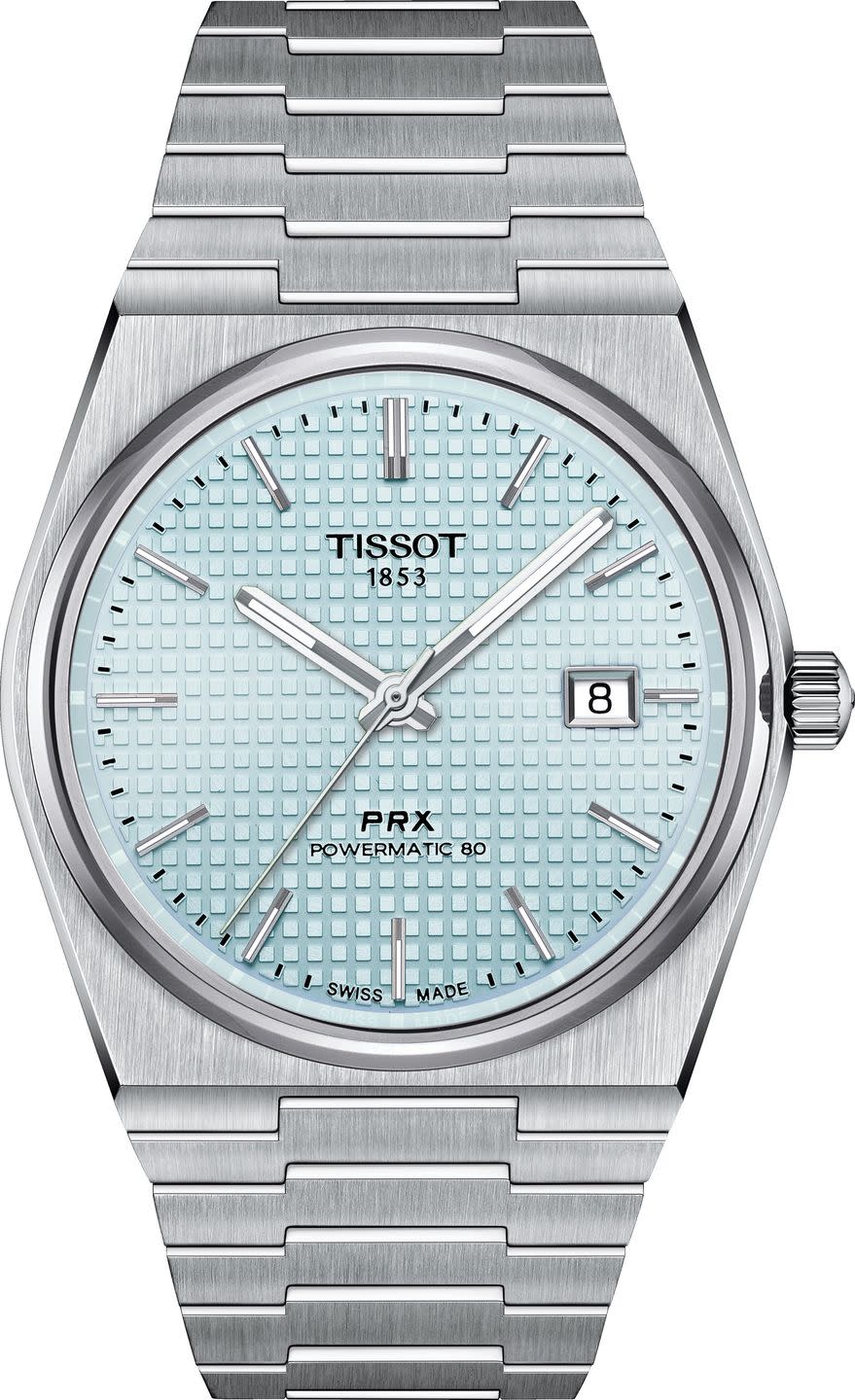England Rugby’s Marcus Smith on Building Strength and Taking Tips From Johnny Wilkinson

It’s the shock of black hair you first notice. Then the brilliant footwork and explosive acceleration. And no one should underestimate his kicking skills. At 25, Marcus Smith is already the consummate fly-half – a lynchpin for both Harlequins and the national team. But compared to many of his peers, he is lighter and slighter; a cheetah among rhinos, you might say.
‘When I was younger, I was naïve in thinking you could just do a little bit of gym work and weights,’ he tells Men’s Health. ‘After finishing training, soaking wet, and being told I had to go to the gym for another hour to do weights was the hardest thing for me. But you see the size of the players these days: how physically capable and strong the forwards are. Me, being slightly smaller in stature, I need to be robust enough to counter the hits, make my tackles and hand off people when necessary.’

He says he has ramped up his gym routine over the last few seasons, working hard at the Harlequins training base at Surrey Sports Park, at the University of Surrey in Guildford. Key to his improvement is his Premiership team’s strength and conditioning coach James Mealing.
‘I’m not very proud of this but when I first started at Quins I was in horrendous nick,’ Marcus admits. On the skinfold test – where fat is measured using callipers at set points around the body – he had clocked an average of 114mm.
‘It was the worst ever as a back, I think,’ he admits. ‘I was embarrassed for a few years about that. It was a driving force for me making a change. If I wanted to play for England and the [British & Irish] Lions, I needed to make sacrifices.’
They were duly made and, nowadays, on the same skinfold test, he measures just 62mm, with a body weight of 83kg. However, as he admits, when it comes to body size, modern rugby union is an arms race. ‘If a guy of 130kg runs square on and hits me right in the head, at 83kg, I’m going to be the one who’s worse off. Being smaller, you find different techniques to take down bigger players and to evade them. As a fly-half, you know people are out to get you and you’re going to get hit late. It’s about expecting to get hit and ensuring you’re strong enough in shoulders and the neck to deal with whiplash, so you can get back up.’
Marcus is lucky to have coaching advice from two sporting legends: former England fly-half Johnny Wilkinson and double Olympic decathlon champion Daley Thompson.
As well as offering tips on kicking and passing, Wilkinson advises his charge on his mental game. ‘He gives me pointers about my life, my mind-set and how I’m feeling,’ Marcus explains. ‘When I was younger I used to dwell on errors a lot. My mum and dad told me I was a terrible loser: whether it was football, rugby or cricket at school, or even computer games with my brothers, I used to dwell on it for days on end. Johnny’s most valuable advice is to not take my life too seriously; not to bury myself in a pillow if I’ve lost a game or I’ve made a wrong decision.’
Thompson, on the other hand, focuses on Marcus’s sprinting skills. ‘My top speed needed work,’ the player admits. ‘I was pretty good at accelerating, so if I saw a gap on the field I’d be able to get through, but normally I’d get caught, especially when I was younger and more chubby.’

Thompson has since helped him maintain his top sprinting speed for longer. ‘If you’re trying to score in the corner or get round a full-back, it’s the straight line stuff that counts,’ Marcus says bullishly. ‘If you see a gap, you’ve got to pin your ears back and just go for it.’ Currently, his top speed is an impressive 10.3 metres per second.
Even as a youngster, Marcus was fast. Growing up in the Philippines and Singapore, the first of three brothers born to his English father Jeremy (who played rugby for Hong Kong) and his Filipina mother Suzanne, he impressed the rugby and football youth teams he played for. Then, when he was 13, the family moved to the UK, to Jeremy’s home town of Brighton.
Marcus says he had a very disciplined upbringing. He describes his father and mother as ‘good cop, bad cop’. In that order.
‘My mum was a pretty harsh critic for all three of us brothers, but a brilliant motivator; very strict. In the Filipino culture, it’s very much academics first and everything else comes after. In regards to homework and revision, she was pretty hot on us to put in the work. All from a place of love, though. She was brutal to us but first to say well done if we got good grades or did well on the sports field.’
His father’s parenting style was very different. ‘My dad was always glass half full; always very positive, seeing the benefits in everything. If we lost a game he would always focus on the positives whereas my mum would ask me about the negatives first. How they complemented each other was beneficial for me and my brothers. We’re lucky to have supportive parents.’
One value Marcus’s mother instilled strongly in him was his Catholic faith. He says this is still a key part of his spiritual and psychological strength. ‘Growing up in the Philippines and Singapore, we used to go to church most Sundays, if we weren’t playing sport. We used to pray every night. We shared a room, me and my two younger brothers, and my mum used to come in and say a prayer every night before we slept.’
Marcus’s faith became particularly important when he suffered a cold streak a few years ago. Stuck on the bench at Harlequins, and with no England team call-up, he followed his mother’s suggestion that his god might help. ‘My mum said let’s try praying,’ he remembers. ‘I felt powerful and strong. I felt I could surrender everything in my mind to God and leave it all up to him. I felt a massive burden off my shoulders and since that day I pray as often as I can. I try to go to church as often as I can.’
Marcus lives in Guildford, not far from his training base. He can often be seen in the Surrey town with his girlfriend, 21-year-old model Beth Dolling.
Although he remains modest about his achievements on the field – over 200 points scored for England so far – many consider him a strong contender for future England captain. But would the responsibility of leading his national team distract him from his vital role as fly-half and goal-kicker?
‘I don’t really know,’ he says. ‘I’m sure it’s an extremely tough job to have to deal with that and perform to your best. But if I am given the opportunity, I'd be thrilled, honoured and I’d definitely give it a go.’
Marcus Smith is an ambassador for Tissot watches and wears the PRX. ‘That's my day-to-day watch. The colours match the Harlequins kit. I started with Tissot two years ago. They always have my back on the field and they definitely play a part in my style off the field.’

You Might Also Like


